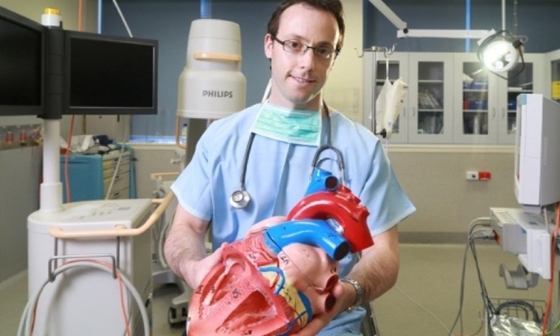Manual pressure augmentation in defibrillation of ventricular arrhythmias (AUGMENT RCT)
/
Manual pressure augmentation in defibrillation of ventricular arrhythmias (AUGMENT RCT)
Associate Professor Dion Stub, Monash University
2022 Vanguard Grant
Years funded: 2023-2024
In patients suffering from out-of-hospital cardiac arrest, timely successful defibrillation is critical to survival.
We plan to assess a technique called manual pressure augmentation (MPA), whereby operators wearing latex gloves push down on the sternal and apical patches at the time of energy delivery ('hands on defibrillation') in the cardiac arrest setting. This has been shown to be more effective in non-cardiac arrest settings.
We perfomed a benchtop study and pilot trial indicating MPA to be safe and effective. We plan to run a world first randomised controlled trial of cardiac arrest patients that compares MPA with standard ('hands off') defibrillation. We hope to show that manual pressure augmentation is a superior approach associated with improved efficacy and survival to hospital discharge.
This study has the potential to change clinical practice for resuscitation of both in-hospital and out-of-hospital cardiac arrest worldwide and, if positive, would be incorporated into international Advanced Cardiac Life Support guidelines
You might also be interested in...

Q&A with Associate Professor Dion Stub
Looking at how patients are treated when their heart stops beating, and how a better job can be done of getting more people through that trauma.

Inotropes in cardiogenic shock
Inotropes in cardiogenic shock

Associate Professor Dion Stub
Pre-hospital point-of-care troponin and risk assessment in chest pain patients
Last updated12 February 2024